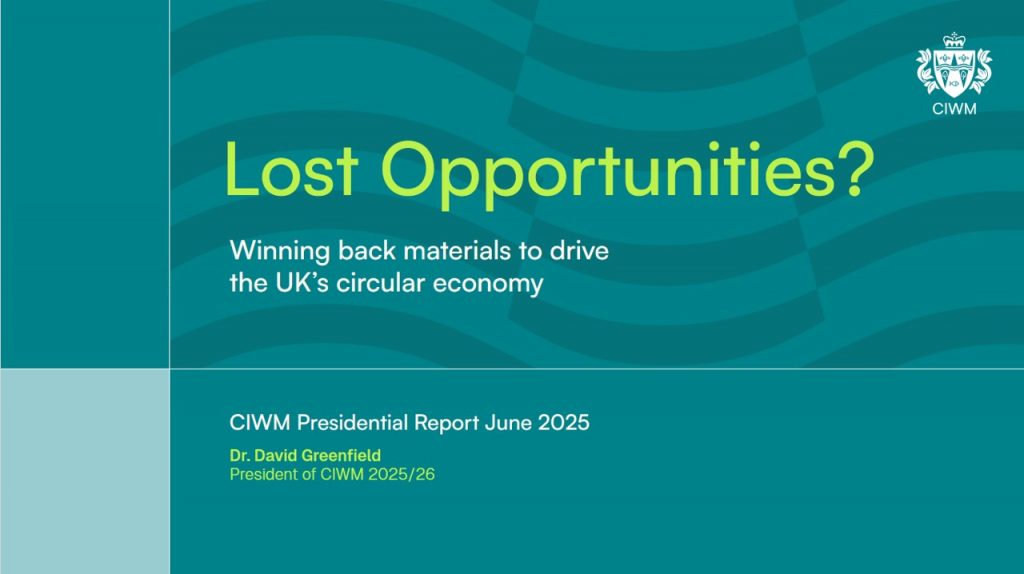The Chartered Institution of Wastes Management (CIWM) has inaugurated its new President, Dr David Greenfield, and launched the 2025 Presidential report
This study on Lost Opportunities? Winning Back Materials To Drive the UK’s Circular Economy makes interesting reading for those in the waste management sector – but is also thought-provoking for EBNet and for Environmental Biotechnology in general.
Part of the study explores 6 ‘lost’ materials, of which 3 – used cooking oil, seafood shells and wool – are classed as renewable organics. All 6 are materials are interesting in their own right and the report has valuable recommendations on the broader actions needed, as well as a welcome and inspiring call to action. But the three renewable organics have a message from EB. Used cooking oil is an organic material that is reprocessed by physico-chemical means. Seashells are produced by living organisms and represent a significant chemical resource, but themselves are primarily inorganic. There are some fascinating studies on wool biodegradation, but its best uses are further up the waste hierarchy in materials applications.
It is telling that, in a report focused on achievable opportunities, there is little mention of bioprocessing options. Is Environmental Biotechnology letting the solid waste sector down, and if so why?
There are some obvious answers, including the intractable nature of municipal wastes where organics contaminated recyclable materials and vice versa. But is this area too difficult for anything other than traditional AD and composting – or do we just need to work harder on new approaches, combining engineering and microbiology to produce integrated systems with high-value outputs? EBNet would very much like to see more discussion and debate on the role of bioprocessing in a sustainable waste management system.
- Meanwhile the Presidential report calls on product designers, policymakers, waste managers and citizens, and recommends the following actions:
- Align UK policies to capture ‘lost’ resources
- Develop business cases to capitalise on these opportunities
- Align public sector procurement policies to support resource recovery
- Foster cross-sector collaboration
- Implement a National Material Data System
- Establish a cross-organisational, open-access research repository
In the words of CIWM’s new President, “Through improved design, collection systems, policy interventions, lifecycle thinking, and circular innovation, there are significant opportunities to harness many of the currently lost materials beyond and including the six highlighted here, for the benefit of the environment, society, and the UK economy”.
For more on this see CIWM news and the CIWM Podcast.



